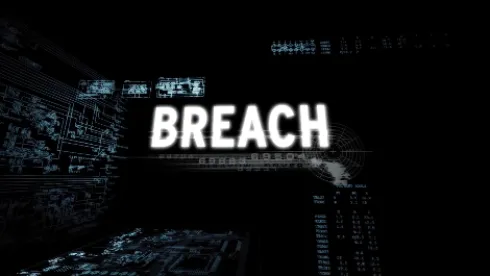In MHS Capital LLC v. Goggin, the Delaware Court of Chancery granted a motion to dismiss a breach of fiduciary duty claim against the manager of a Delaware limited liability company because all of the manager’s conduct that could have formed the basis of such claim was covered by the duties of the manager delineated in the limited liability company agreement. The Court also analyzed and dismissed claims for, among other things, fraud, breach of the implied contractual covenant of good faith and fair dealing, unjust enrichment, and misappropriation of trade secrets.
MHS Capital involved East Coast Miner LLC, a Delaware limited liability company (“ECM”). The members of ECM included MHS Capital LLC (“MHS”), Keith Goggin, and Michael Goodwin. Goggin also served as the manager of ECM. Also involved with this litigation were East Coast Miner II LLC (“ECM II”) and Licking River Lenders (“LRL”). ECM, ECM II, Goodwin, and Goggin were the members of LRL.
ECM purchased a senior debt note from U.S. Coal, Inc. (“US Coal”) and obtained a security interest in assets owned by the “Licking River” division of US Coal (“LR”). The security interest gave ECM the right to “credit bid” (i.e., bid the value of the note, instead of cash) for the LR assets if US Coal entered bankruptcy, which it did in May of 2014. When the time came to credit bid on the LR assets, Goggin allowed LRL to exercise ECM’s credit bid right. This forced ECM to share the proceeds of the LR assets with ECM II, Goodwin, and Goggin. This scheme was advanced by an April 10, 2015 sale order entered by the U.S. Bankruptcy Court for the Eastern District of Kentucky (the “Bankruptcy Court”).
In a separate series of transactions, Goggin allegedly misappropriated a different set of LR assets. To facilitate this misappropriation, Goggin formed another entity, Ember Energy LLC (“Ember”), in which Goggin and John Collins, a friend of Goggin’s, owned all of the interests. According to MHS, Goggin misappropriated ECM’s proprietary and confidential information and trade secrets to effect the assignment of certain LR assets to Ember. On April 22, 2015, the Bankruptcy Court entered a second sale order authorizing the sale of certain LR assets to Ember.
After it learned of Goggin’s wrongdoing, MHS filed a complaint with the Delaware Court of Chancery against Goggin, Goodwin, Collins, and ECM (collectively, the “Defendants”) alleging, among other things, beach of contract, breach of fiduciary duties, fraud, breach of the implied contractual covenant of good faith and fair dealing, tortious interference with a contract, unjust enrichment, and misappropriation of trade secrets. The Defendants moved to dismiss the complaint for failing to state a claim upon which relief could be granted.
Prior to addressing the Defendants’ motion to dismiss, however, the Court addressed the Defendants’ argument that MHS was precluded from seeking equitable relief because such relief would interfere with the sale orders entered by the Bankruptcy Court (the “Sale Orders”). The Court rejected this argument providing that, at this stage, the Court could not rule out the possibility that MHS could be entitled to forms of equitable relief that would not derogate the Sale Orders. The Court also rejected the Defendants’ argument that MHS was judicially estopped from seeking equitable relief. Judicial estoppel acts to preclude a party from asserting a position inconsistent with a position previously taken in the same or earlier legal proceeding. In rejecting this argument, the Court held that MHS’s request for equitable relief was not “clearly inconsistent” with the position that it took before the Bankruptcy Court.
The Court then denied the Defendants’ motion to dismiss MHS’s breach of contract claim. MHS alleged that Goggin, as the manager of ECM, breached his contractual duties under Section 5.6(a) of the limited liability company agreement of ECM (the “LLC Agreement”) to act in good faith and with ordinary care. According to the Court, apart from the issue of remedies, the Defendants did not argue that MHS’s complaint failed to state a claim based on Goggin’s alleged breach of his duties imposed by the LLC Agreement. Thus, the Court was permitted to assume that the complaint stated a claim for breach of contract.
The Court, however, granted the Defendants’ motion to dismiss the breach of fiduciary duty claim on the ground that it was duplicative of the breach of contract claim. Where a dispute arises from obligations that are expressly addressed by a contract, that dispute will be treated as a breach of contract claim and any breach of fiduciary duty claims arising out of the same facts will be foreclosed as superfluous. The Court held that all of the conduct that could conceivably form the basis of a fiduciary duty claim against Goggin was covered by the duties enumerated in the LLC Agreement.
With respect to the fraud claim, MHS alleged that Goggin committed fraud when, over the course of many months, he repeatedly represented to MHS that he was arranging for ECM to use its credit bid right to get the full value of its security interest in the LR assets. The Court found that these allegations failed to plead fraud with the particularity required to survive a motion to dismiss. According to the Court, a plaintiff must plead fraud with enough particularity to provide a defendant with detail sufficient to apprise him of the basis for the plaintiff’s claim. Here, the Court held that a years-long time frame offered by MHS during which the representations occurred could not possibly give Goggin enough information to apprise him of the basis for the fraud claim.
The Court then dismissed MHS’s claim that Goggin breached the implied contractual covenant of good faith and fair dealing by usurping ECM’s business opportunities. According to MHS, the LLC Agreement implicitly prohibited Goggin from engaging in such activity. The Court, however, found that this claim failed because it related entirely to conduct explicitly addressed by Section 5.6(a) of the LLC Agreement, which required the manager to act in good faith. According to the Court, when a contract directly addresses the matter at hand, the terms of the contract control and the implied covenant cannot be used to circumvent the parties’ bargain.
The Court then held that MHS’s claim for unjust enrichment failed because MHS’s rights vis-à-vis the Defendants stemmed entirely from the LLC Agreement. MHS, having bargained for certain contractual rights and remedies against Goggin, could not use equity to circumvent the results of its bargain.
The Court then dismissed MHS’s claim for misappropriation of trade secrets because MHS failed to allege the existence of a trade secret or ECM’s efforts to maintain its secrecy. The Court also dismissed MHS’s books and records claim because, according to the Court, a books and records claim should be litigated in a distinct proceeding. Moreover, since the breach of contract claim survived the motion to dismiss, MHS’s demand for books and records would be satisfied during the discovery phase of the litigation. The Court then dismissed MHS’s claim against Goodwin for tortious interference with a contract (i.e., the LLC Agreement) because Goodwin was a party to the LLC Agreement. According to the Court, a party cannot be liable for tortiously interfering with a contract to which it is a party.
Lastly, the Court rejected the Defendants’ argument that all of MHS’s claims were barred by res judicata. The Defendants argued that the Sale Orders entered by the Bankruptcy Court were final decisions on the merits that should have been given preclusive effect. According to the Court, however, res judicata cannot preclude an unasserted claim where the plaintiff either did not know or could not have known the underlying facts at the time of the prior action. At this stage of the litigation, the Court could not determine whether MHS knew or could have known of Goggin’s scheme at the time of the Sale Orders. As such, res judicata did not bar MHS’s breach of contract claim.





 />i
/>i

